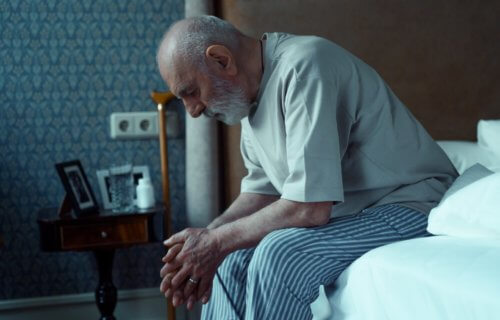DALLAS — Older adults who suddenly find themselves struggling to get out of a chair may want to see a doctor right away. A new study finds people with low physical function after age 65 are at a greater risk for heart problems.
Apart from traditional heart risk factors, such as high blood pressure and high cholesterol, researchers with the American Heart Association found adults who performed poorly on a physical function test were at a higher risk for future heart attack, stroke, and heart failure.
The Short Physical Performance Battery (SPPB) is a measure of physical function, giving a score based on a person’s walking speed, speed of rising from a chair without using your hands, and standing balance. It is separate from tests evaluating physical fitness.
“While traditional cardiovascular disease risk factors such as high blood pressure, high cholesterol, smoking or diabetes are closely linked to cardiovascular disease, particularly in middle-aged people, we also know these factors may not be as predictive in older adults, so we need to identify nontraditional predictors for older adults,” explains Kunihiro Matsushita, MD, PhD, an associate professor in the department of epidemiology at the Johns Hopkins Bloomberg School of Public Health and the division of cardiology at the Johns Hopkins School of Medicine, in a media release.
“We found that physical function in older adults predicts future cardiovascular disease beyond traditional heart disease risk factors, regardless of whether an individual has a history of cardiovascular disease.”
Nearly half of heart patients were in poor shape
The findings come from an ongoing study where researchers enrolled 15,000 adults between the ages of 45 and 64 from 1987 to 1989. The study looked at different causes for atherosclerotic disease — a condition where there is plaque or fatty buildup in the arteries. Researchers checked in with participants beginning in 2012, with yearly and semi-yearly phone calls and in-person clinic exams.
The researchers also analyzed the health data from 5,570 adults who had an average age of 75 from 2011 to 2019 and did yearly check-ins with the team. Participants received either low, intermediate, or high grades for their physical function depending on their test performance. Results show 13 percent had low physical function, 30 percent had intermediate fitness, and 57 percent had high physical function.
In the eight-year analysis, 930 people had one or more heart problems, with 47 percent having low physical function. The relationship between low physical function and heart disease persisted even when researchers took other factors into account, such as high blood pressure, high cholesterol, and diabetes. What’s more, the authors conclude a person’s physical function score was accurate at predicting future heart disease risk, regardless of their heart health history.
“Our findings highlight the value of assessing the physical function level of older adults in clinical practice,” says study lead author Xiao Hu, MHS, a research data coordinator in the department of epidemiology at the Johns Hopkins Bloomberg School of Public Health. “In addition to heart health, older adults are at higher risk for falls and disability. The assessment of physical function may also inform the risk of these concerning conditions in older adults.”
There were some limitations to the study. The population enrolled in the study may not be representative of the population as only white and Black adults took part in the examination.
The study is published in the Journal of the American Heart Association.

